Steroid-resistant Nephrotic Syndrome
Steroid-resistant nephrotic syndrome. Approximately 10-20 children with nephrotic syndrome who do not respond to therapy with corticosteroids are classified as steroid resistant SRNS. Sampson MG Pollak MR. Patients with genetic forms of steroid-resistant NS SRNS are usually unresponsive to immunosuppressive therapy.
Opportunities and Challenges of Genotyping Patients With Nephrotic Syndrome in the Genomic Era. SRNS is viewed as a heterogeneous disease entity including immune-based and monogenic aetiologies. Steroid-Resistant Nephrotic Syndrome NGS Panel Fulgent Genetics.
Because SRNS is rare treatment strategies are individualized and vary among centres of expertise. Nephrotic syndrome also known as steroid-resistant nephrotic syndrome is an inherited condition that impairs ability of the kidneys to filter protein out of the urine. Steroid sensitive nephrotic syndrome.
Their management is difficult since patients are on one. In light of these observations steroid-resistant nephrotic syndrome SRNS in this patient appears to be a primary event but not related with virus infection drug. Steroid-resistant nephrotic syndrome SRNS remains a challenge for paediatric nephrologists.
Recurrence of the disease in the grafted kidney after renal transplantation is exceptional. Nephrotic syndrome NPHS2 -related also known as steroid-resistant nephrotic syndrome is an autosomal recessive pan-ethnic disorder caused by pathogenic variants in the gene NPHS2. Onset is usually during childhood or adolescence.
Epub 2014 Oct 27. Patients with steroid-resistant nephrotic syndrome SRNS represent a challenging subset of patients with nephrotic syndrome who often fail standard immunosuppression and have a higher likelihood of progressing to end-stage renal disease. Steroid-resistant nephrotic syndrome SRNS is defined as NS resistant to steroid therapy defined by the absence of complete remission after four weeks of daily prednisone therapy at a dose of 60 mgm 2 per day 12.
Steroid-resistant nephrotic syndrome type 2 is an autosomal recessive disorder characterized clinically by childhood onset of proteinuria hypoalbuminemia hyperlipidemia and edema. Steroid-resistant nephrotic syndrome SRNS is a common cause of chronic kidney disease in childhood and has a significant risk of rapid progression to end-stage renal disease.
Steroid sensitive nephrotic syndrome.
4978 Santa Anita Ave Temple City CA 91780 P. In many instances steroid-resistant cases are due to single gene variants that affect glomerular podocyte differentiation structure and function. Nephrotic syndrome also known as steroid-resistant nephrotic syndrome is an inherited condition that impairs ability of the kidneys to filter protein out of the urine. Approximately 10-20 children with nephrotic syndrome who do not respond to therapy with corticosteroids are classified as steroid resistant SRNS. Familial forms of idiopathic steroid-resistant nephrotic syndrome do not respond to any treatment with steroids or immunosuppressive drugs and the disease progress to terminal renal failure. Steroid-resistant nephrotic syndrome SRNS is a common cause of chronic kidney disease in childhood and has a significant risk of rapid progression to end-stage renal disease. Steroid-resistant nephrotic syndrome SRNS is defined as NS resistant to steroid therapy defined by the absence of complete remission after four weeks of daily prednisone therapy at a dose of 60 mgm 2 per day 12. Onset is usually during childhood or adolescence. The age at which symptoms begin varies.
Approximately 85 of cases show complete remission of proteinuria following glucocorticoid treatment. Epub 2014 Oct 27. Steroid-resistant nephrotic syndrome SRNS is a common cause of chronic kidney disease in childhood and has a significant risk of rapid progression to end-stage renal disease. Steroid-resistant nephrotic syndrome SRNS remains a challenge for paediatric nephrologists. Sampson MG Pollak MR. Patients who do not achieve complete remission within 4-6 weeks of glucocorticoid treatment have steroid-resistant neph. Recurrence of the disease in the grafted kidney after renal transplantation is exceptional.






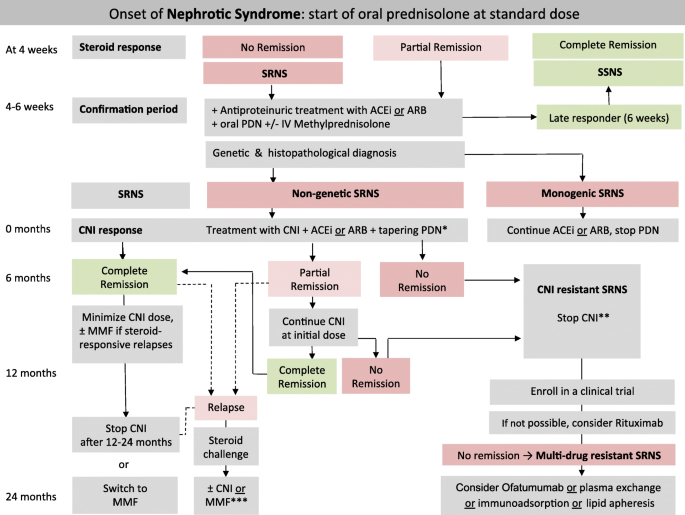


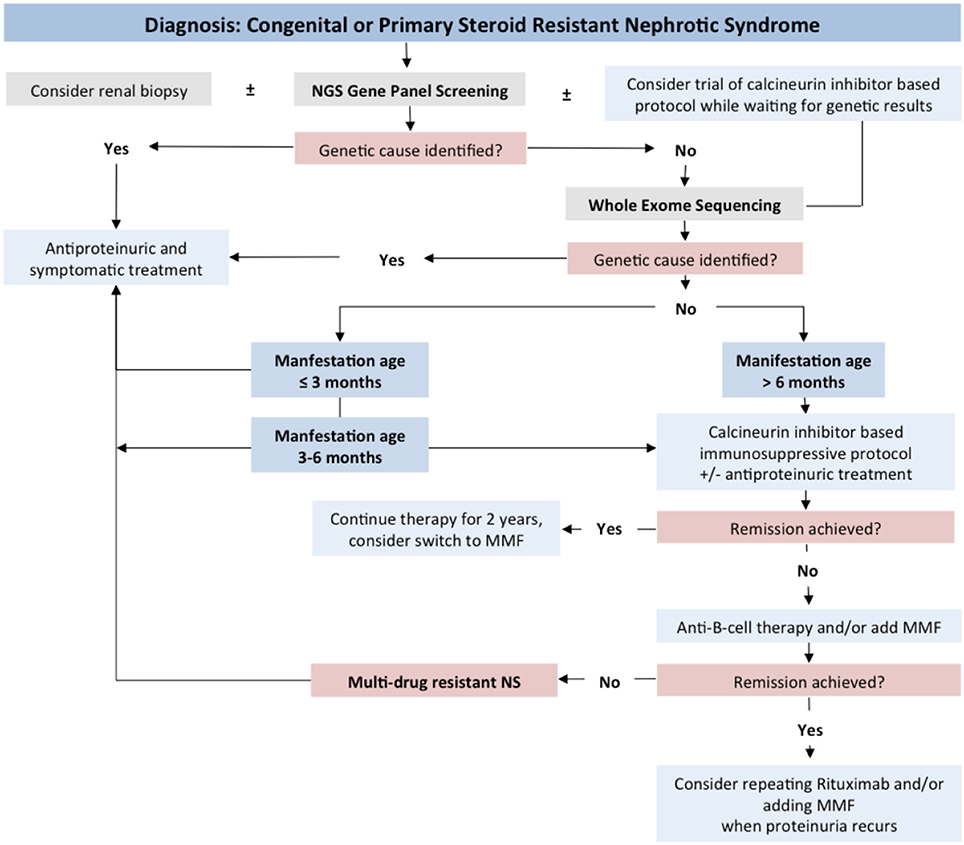












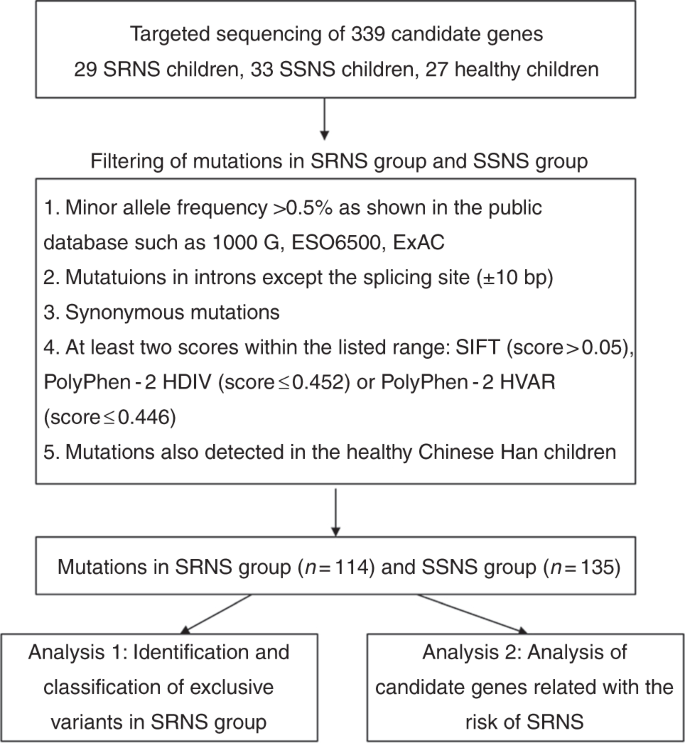

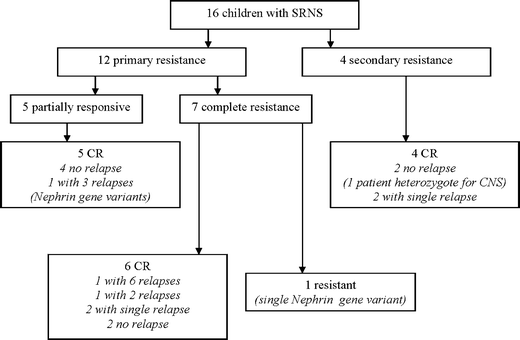

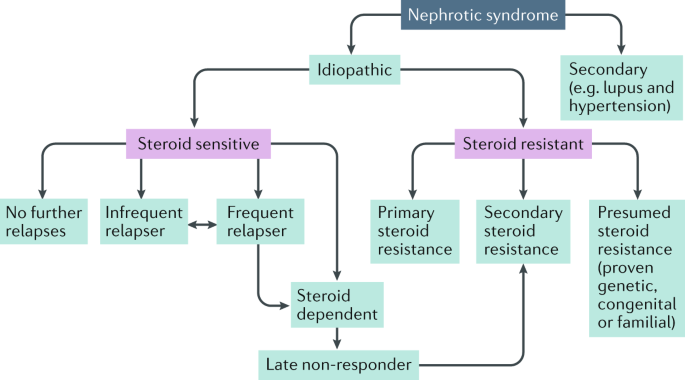


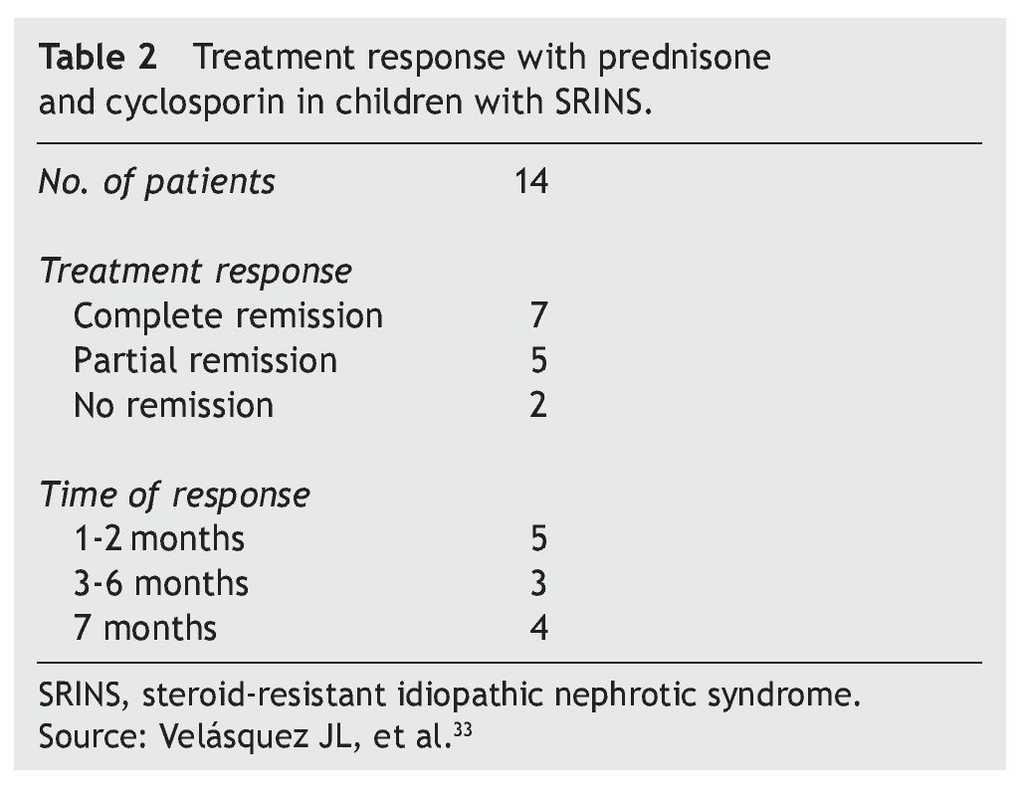


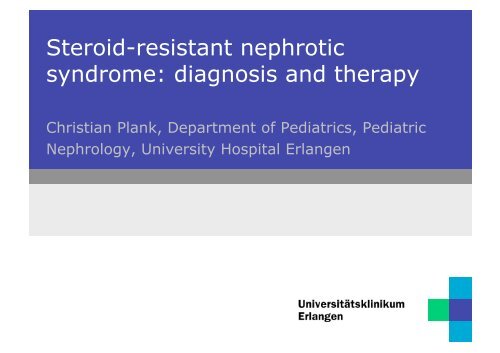

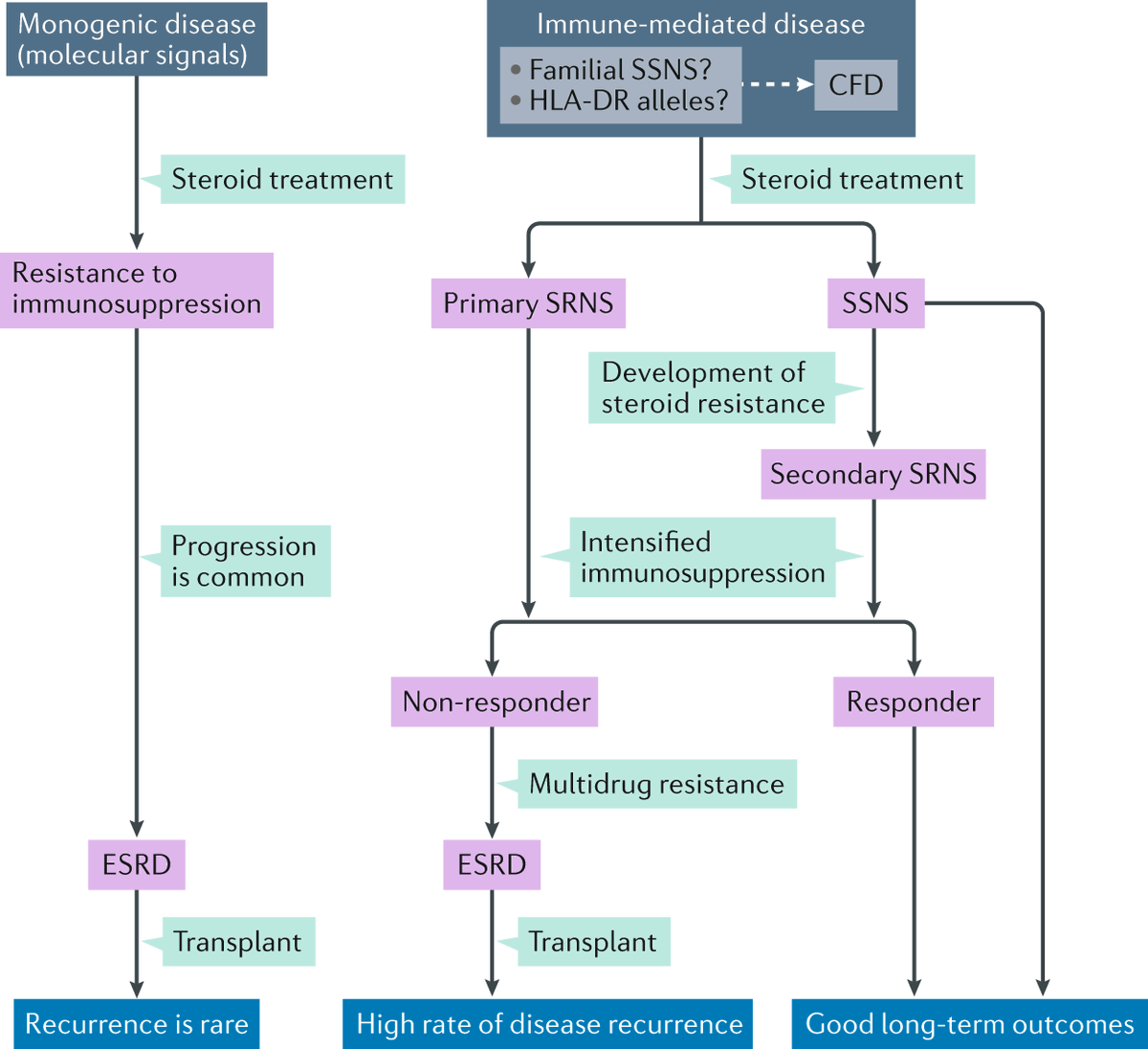
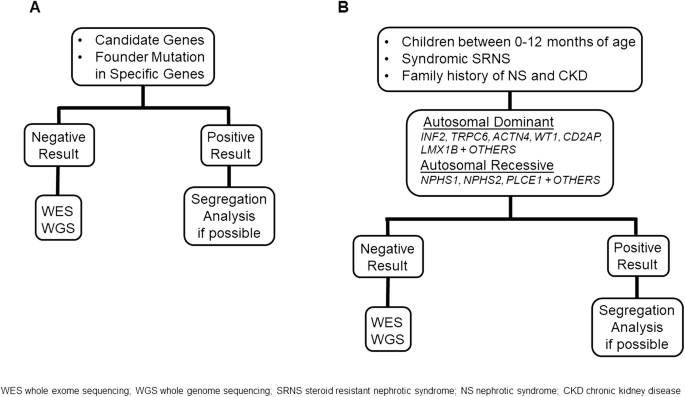
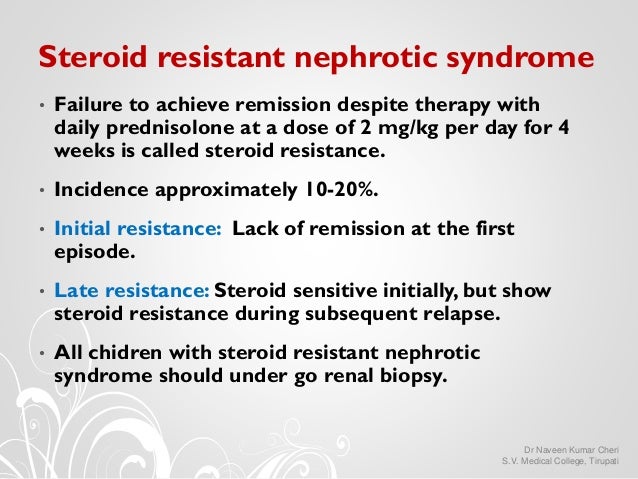








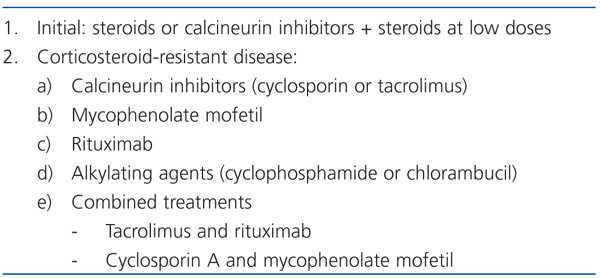


Post a Comment for "Steroid-resistant Nephrotic Syndrome"